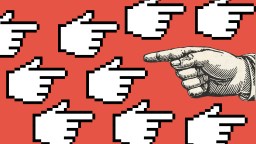When Ukraine declared itself an independent state during the 1991 collapse of the Soviet Union, most Ukrainians celebrated the historic move. To Vladimir Putin, however, the formal separation of Ukraine from Russia represented the “greatest geopolitical catastrophe” of the 20th century.
Today, the two nations are locked in war. The inability to end the fighting in the foreseeable future will largely be driven by their shared history, about which Ukraine and Russia have starkly different views.
Another factor working against a swift end to the war is the inability of modern institutions to effectively prevent and handle crises like the Russia-Ukraine war, according to the political scientist and author Ian Bremmer. Still, amid this “geopolitical recession” lie opportunities to reinvigorate waning institutions and create new ones, hopefully rebalancing the global order for the better.
IAN BREMMER: For centuries, the Ukraine has been part of what Russians call 'the Motherland.'
NARRATOR: 'Crowds below cheering as the blue and yellow banner of independent Ukraine was hoisted.'
BREMMER: I was there for Ukraine's first day of independence, their or in Russian. There was an extraordinary outburst of emotion from Ukrainians and Russians, and Russian-Ukrainians, half and half, that were out on the street, and the flags being waved and the extraordinary feeling that they were giving birth to an independent nation that was rising from the ashes of a failed empire. And now of course, these two peoples are at war with each other, and that's where we are today. And I think that the inability to bring this war to a close anytime in the foreseeable future is going to be driven in large part by both the shared history and how closely connected they were; leading to the war crimes Ukraine is going through right now.
This is much deeper than just, 'Let's figure out how we can get both sides to get along.' I'm Ian Bremmer, President of Eurasia Group, and I just wrote the book, "The Power of Crisis." So I started my Ph.D. back in 1989. And there's no question that if you were thinking about the world as a political scientist, you were thinking about the Soviet Union. In the former Soviet Union, there were 15 Soviet Socialist Republics. And they all had political and cultural and social institutions. The Soviet Union was meant to be this crucible of all of these national differences.
I referred to this as 'Matryoshka nationalism,' the nesting dolls, where you have ethnic groups and territories that are aligned with them inside other ethnic groups and territories. So you've got the Soviet Union, and inside the Soviet Union, you have the 15 republics, then inside those republics, you have autonomous regions and autonomous areas. And so as a consequence, even though the Russians and the Ukrainians felt very fraternal and connected, there was a different Ukrainian Soviet Socialist Republic to the Russian Socialist Republic. And interestingly, when Stalin was the Commissar of Nationalities, he was very involved in not only creating a lot of these territories, but also moving people around. This brought Russians into these territories to ensure that if the Soviet Union ever fell apart, that there were these tripwires that would actually create massive confrontation that would help to ensure that the Soviet Union couldn't actually implode.
NARRATOR: 'Mr. Gorbachev wants to bring the Communist party up to date. Its old fashioned methods are blocking his reforms at home and abroad.'
BREMMER: When Gorbachev became General Secretary, he fundamentally unwound the power that connected these people in what Putin refers to as 'The Greatest Geopolitical Catastrophe of the 20th Century.' There were three different manifestations: First, 'Perestroika,' he said, "I'm going to economically reform so the money that you make isn't coming from the government. You can have your own independent enterprises. Secondly, we're going to have 'Glasnost.' You're gonna be able to write and say what you want. And then we're gonna do something called 'Khozraschyot,' which is self-accounting." And that is decentralization of power. And what does that mean? It means in very short order, the Soviet Union implodes, but it implodes precisely because of ethnic and national animus. It's primarily 15 different nations that want independence for their countries, which already have the political and the institutional framework ready-made. All you needed to do was get rid of the top doll in the Matryoshka, and the other Matryoshkas all pop up.
NARRATOR: 'Regimes in communist countries have been quietly or not quietly, like in Romania, washed out by the people- we used so many times to say that power is in the hands of the people. When it finally happened, everybody is surprised.'
NARRATOR: 'The roadblock now sports Russian flags. President Putin has said there should be no more violence, but it feels as if Crimea is being annexed day by day.'
BREMMER: The history of Russia, Crimea, Ukraine, Russians in Ukraine, on the one hand, wasn't such a big deal when the Soviet Union was together. But when Ukraine became independent and Russia became independent, suddenly you did have these historical claims on territory that were going to become more challenging. And as you see the Russians saying, "We want the Donbas!" And "Acts of genocide are being committed against Russians." Which is not actually happening, but was the justification for them to make the invasion on February 24th.
You see so much of these decades and centuries of history. Eurasia Group puts top risks out every year about what we think the things that are going to go bump in the night will be over the course of the coming 12 months. We've done it for a long time, we leave it on our homepage for the whole year. At the beginning of 2022, we put this out, and Russia is, I think, number five. And that's because we are pretty convinced that Russia is gonna head towards greater conflict with Ukraine, but it would've been number one, if I was convinced that Putin was going to invade Ukraine fully, and remove or attempt to remove President Zelensky from power.
I did not believe that. And I'll tell you one reason I didn't believe that is because Putin only had 180,000 troops that were arrayed on Ukraine's border. And no, I didn't believe that this was only a training exercise, you don't take the Russians at face value when they say this sort of thing. But it was also clear that a total number of 180,000 troops is fewer than the Ukrainian army. I mean that invasion is sort of 0.8 to 1. Anybody that's ever played Risk understands that you have an advantage holding territory.
But Putin instead decided, "No, I think that Biden's weak. I think Macron is going his own way. I know Merkel's gone. And this new chancellor, Olaf Scholz, from the Social Democratic Party, those are the ones that like to work with the Russians. It's wintertime, right? They all need my gas. I've got maximum influence right now. We saw what happened with Afghanistan. When I met with Biden a year ago in Switzerland, he didn't even bring up Ukraine. It was all about cyber. I told my guys to stop, so we're good over there. They wanna pivot to Asia, they're focused on China, meanwhile, Xi Jinping's just said I'm his best friend. Friends without limits globally, it's all working.
So, I have a unique opportunity to invade Ukraine, remove Zelensky, and furthermore, I can actually undo the biggest humiliation in Russian history. I can recreate the Russian Empire: Belarus, Ukraine, and Russia together." That's what he believed. And it was the single biggest geopolitical mistake made by any leader on the global stage since the Wall came down in 1989. The misjudgment was massive. The failure was immense and immediate, and the consequences for Putin and for Russia will be permanent.
NARRATOR: 'The sweeping Western sanctions are designed to inflict maximum pain on the country's economy by expelling it from global markets and freezing assets around the world.'
BREMMER: I think people aren't yet looking at the level of degradation that the Russian economy is going to experience for years. Their infrastructure and their trade has been built towards Europe. So the fact that Europe is going away as an interlocutor for Russia is enormously important. I mean, this year you'll see a 10 to 15% contraction of the Russian GDP. The investors from the West into Russia are gone, they're not coming back. Once the Europeans no longer need energy from Russia- which is largely already true for coal- it will be almost completely true of oil by the end of 2022, this year. It will be mostly true for gas by the end of 2023, next year by winter. That's not coming back. And the Russians are going to be angry domestically. But they're also gonna be angry externally. And so far, most of our focus has been the Russian war in Ukraine. But going forward, we're gonna broaden that aperture.
We'll broaden the aperture because, of course, it's going to affect global food prices and energy prices, and people will suffer, particularly, in the developing world. But also we're gonna broaden the aperture because that fight is going to be much more about Russia versus NATO. And so far, we have not seen much of that. Nobody wants a global crisis, and least of all the Ukrainians, when we talk about this war. We've discussed how devastating it has been, is, and will be for the Ukrainian population, 44 million people.
Every one of them with multiple stories of suffering and tragedy, every single one. And yet, we in the West have watched for decades as NATO has eroded to the point that Trump could call it "obsolete," Macron could call it "brain-dead." We have watched as the Europeans have been unwilling to spend on national security to care about their own defense. We have watched as the Americans have become more indifferent to the Transatlantic Alliance, and instead, the pivot to Asia. China is going be the largest economy in the world likely by the end of this decade. They are in no hurry.
The 21st century has had a geopolitical order that has been increasingly failed. The leadership has been fractious, has not been trusted, has been polarized. And as much as administrations from Obama to Trump to Biden have tried to address that, they have failed, until Putin invaded Ukraine. And that decision of Putin to create a global crisis was precisely what was necessary to make NATO an institution that could be reformed and revived. It was precisely what was necessary to bring the Finns and the Swedes into that organization- something they never would've done if it weren't for the invasions.
Precisely what was necessary to get the Germans to say, "We're gonna spend 2% of our GDP on defense going forward, and we're going to change the way we think about our polity, so that yes, we will play a role in international leadership to support the Ukrainians, something we wouldn't have done before." The Poles, who themselves were saying, "Well, we're not so sure about this European Union."
Now they're hosting 3 million Ukrainian refugees, they think Europe needs to be stronger, they need common defense. This is precisely the "kick in the ass" that the West required to pay attention to the fact that its institutions were becoming less relevant and less effective for decades. And what we learn in an environment of what I call a 'geopolitical recession'- in a world where institutions are increasingly misaligned with the balance of power, and no one's doing anything about it- is that you require a crisis to create the seeds for a new global order. And from these crises, a new global order will emerge.







